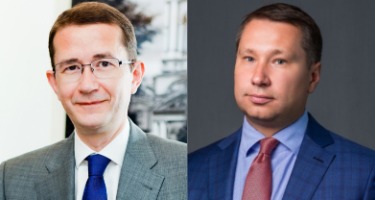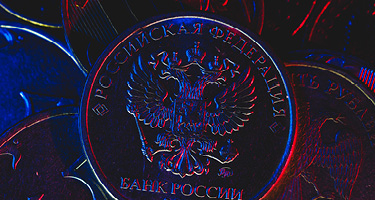Famously enigmatic, Russia is trading opacity for market clarity, and outside investors are taking note. That’s the view of Yulia A. Solomakhina, a Moscow-based partner at Cleary Gottlieb Steen & Hamilton, which was named Russia’s Corporate “Law Firm of the Year” for Corporate Law in 2020. Ms. Solomakhina focuses on M&A and cross-border transactions involving Russian businesses; she recently spoke with Best Lawyers CEO Phillip Greer to discuss technology, security, and the vast economic potential of her native country.
Which cases have you worked on in the last year or two that you think might have led to this recognition from your peers?
Yulia A. Solomakhin: We do the most high-profile cases in [Russia], both big-ticket and high-complexity. Of the ones I worked on, the AliExpress joint venture that closed recently was one of the major deals. It’s the major Russian cross-border deal over the past couple of years, and it was truly complex: a joint venture between Alibaba Group, the global digital-commerce company; [Russian mobile operator] MegaFon, our client in that deal; Mail.ru Group, the digital-services operator; and RDIF, the Russian sovereign-wealth fund. [Its purpose is] to integrate Russia’s key consumer internet and e-commerce platforms and launch a leading social commerce joint venture in Russia and the [Commonwealth of Independent States]. The Russian e-commerce market is said to have an annual turnover of over USD $14 billion, so there’s a huge body of consumers who can benefit from this.
Are protectionism and trade-war turmoil causing any headaches for your cross-border and international clients?
I cannot say no; it would be dishonest. Of course, times change, and the political and regulatory environment changes. Clearly, today is not the easiest time to do business when you’re a multinational. But at the same time, businesses try to be as apolitical as possible.
While there were some exits from the Russian market, overall the significant majority of multinationals who had business in Russia before [U.S. Congressional] sanctions continue to do business in Russia—just paying more attention to sanctions and compliance issues. There are interesting examples when existing multinational clients grow their businesses in Russia these days. One is the joint MOU signed by Barilla, the Italian pasta company, and the government of the Moscow region to assist Barilla with a significant additional investment into Russia. To me, that shows trust in Russian consumers again and gives me a lot of hope.
A couple of years ago, one of your colleagues published an article surveying the scene in Russia. She noted the opportunities blockchain, ICOs, and fintech could offer the country. Have your clients inquired about these?
Absolutely. I’ve developed a deep interest because I devote a lot of time to projects that involve new technologies, and clients who use new technologies are also looking to embrace other new technologies. For example, many Russian clients have done Russian bond offerings on the Moscow Stock Exchange using blockchain technology as the placement structure. Generally speaking, I’m very proud of the Moscow Exchange. I sit on their Primary Market Committee and Issuers Committee, and we see how much the exchange cares about technology. This is one of the driving forces in the Russian market. Again, if it weren’t for sanctions, I think [the exchange] would have had much more volume and more deals, but they’re doing their best. In terms of technology, I think they’re on par with any other major stock exchange in the world.
As for ICOs and cryptocurrencies, from what I see from our interactions with the Moscow Exchange and the Russian Central Bank, I think that Russian regulators are trying to be very careful, trying to take one step at a time, because the Russian market is not that mature. As recently as 1993, I believe, there was this huge [mid-level marketing] Ponzi scheme that made a lot of consumers suffer. So, my understanding is that the financial markets’ regulator at the Central Bank is not currently vocally supportive of ICOs and crypto. This approach is in line with what regulators in developed markets think—they have to protect consumers as well and strike an appropriate balance between the hype about the new technologies and consumer protection.
Cybersecurity and hacking are increasingly in focus, too. What sort of advice do you provide clients? How well prepared are most corporations for cyber-threats?
[Cleary Gottlieb] has a very strong crisis-management and data-protection practice that deals with such situations. We often provide strategic advice on how to deal with unexpected or potentially destabilizing events that threaten serious financial [and] reputational consequences. We offer a publication, Global Crisis Management Handbook, that’s designed as a go-to reference for many of the legal and practical implications that arise. The general advice is that to deal with cybersecurity threats, you have to prepare, to think through your system’s risks, and take action to mitigate those risks.
As a result, at least with our clients, I see that many of them are pretty well prepared for any situation. Maybe they won’t be able to stop some leakage, but at least they know what to do—how to handle the situation in terms of PR, in terms of communications with the shareholders, board members, the management team, consumers.
Finally, are there any upcoming projects you’re particularly excited about?
The same day the parties announced the completion of the AliExpress deal, they also announced their agreement in principle [with] Alipay for Russian payments. This would be a joint venture with Chinese Alipay, the mobile-payments arm of Alibaba Group. Here again, Mail.ru, MegaFon, and RDIF would participate. The idea is that it’ll focus on digital payment services for Russian users, in strict compliance with all Russian regulatory requirements, in terms of data protection, banking regulation, and financial regulation. I think it’ll be another exciting tech deal.
This interview has been edited for length and clarity.

































